Taxpayer spending on asylum seeker healthcare skyrockets by over 1100%
Program includes pharmaceuticals, vision care, counselling, assistive devices, prosthetics, homecare, nursing homes, physiotherapy, and occupational speech therapy
New government data reveals a staggering 12-fold increase in spending on medical procedures for asylum claimants over just nine years under the Liberal government.
The government data released Tuesday revealed that the Liberal’s have drastically increased spending on the Interim Federal Health Program. The federal government released the data in response to an Order Paper Question submitted by Conservative MP Rachael Thomas on program spending and the number of recipients.
Taxpayer spending on the IFHP rose from $66 million in 2016-17 to a preliminary estimate of $821,191,548 so far in 2025-26, an 1,144 per cent increase.
Conservative immigration critic Michelle Rempel Garner noted the program includes services many Canadians do not receive or must pay for themselves, such as pharmaceuticals, vision care, counselling, assistive devices, prosthetics, homecare, nursing homes, physiotherapy, and occupational speech therapy.
“This type of coverage has increased to $456 million in 2024, a 1,186 per cent increase since 2016,” Rempel Garner said in a statement released by the Conservatives. “Canadians are a compassionate people, but is it really fair for non-citizens to get healthcare coverage that Canadians themselves pay for and do not receive?”
WATCH MP Michelle Rempel Garner asks the Liberal Immigration Minister about asylum healthcare costs
From 2016 to 2024, user claims to the IFHP increased by 376 per cent (from 84,313 to 402,128), and taxpayer reimbursements to the program rose by 1,101 per cent.
“Mark Carney and the Liberals have spent nearly a billion dollars in the past year on IFHP claims - at a time when housing, jobs, and healthcare are under enormous strain thanks to their broken immigration system,” she said. “This is on top of the $1.1 billion they have spent on hotels for asylum seekers and the $1.5 billion they have given to provinces for refugees.”
Rempel Garner wrote in a Substack article that the asylum backlog has grown from 9,999 in 2015 to 286,00 in 2025. She attributed the massive spike to illegal immigration following former prime minister Justin Trudeau’s tweet in January 2017 when he said to illegal immigrants in the U.S. “#welcome to Canada.”
“Canadians have been paying into our healthcare system for their entire lives. Our seniors deserve to reap the rewards of that hard work by getting access to healthcare when they need it,” she said in a statement. “Instead, our healthcare system is already overwhelmed and over-capacity, and Canadian seniors can’t get the treatment they need.”
Meanwhile, healthcare wait times in Canada have increased from 20 weeks in 2016 to a median average of 30 weeks in 2024. And according to a SecondStreet study, at least 15,474 Canadians died waiting for healthcare in 2024.
In January 2025, the Canadian think tank SecondStreet, which published the study, confirmed that at least 74,677 Canadians died while waiting for healthcare since April 2018.
Rempel Garner noted that many asylum claimants are fraudulent, yet Canadians still foot the bill for even the fraudsters, while the Canadian healthcare system remains overwhelmed.
In her Substack article, Rempel Garner accused the Liberals of allowing the asylum system to become an “unregulated backdoor system for economic migration,” providing migrants with long-term benefits initially designed to be short-term for the “world’s most vulnerable.”
“In many cases now, people with what will ultimately be a bogus asylum claim can receive access to better benefits than many Canadians can,” Rempel Garner said. “This is unsustainable. Canadians are proud to be caring people, but unvalidated asylum seekers should not get better benefits than Canadians do. Immediate reform is needed.”
READ the Government’s own document exposing the numbers
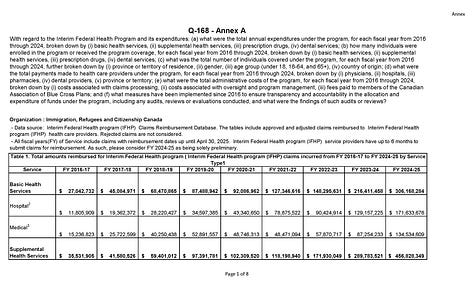
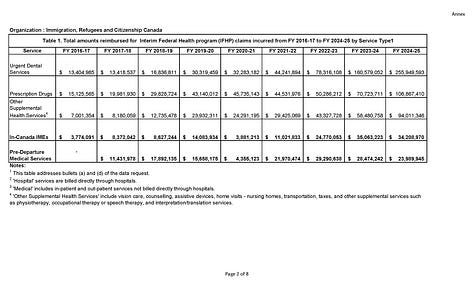
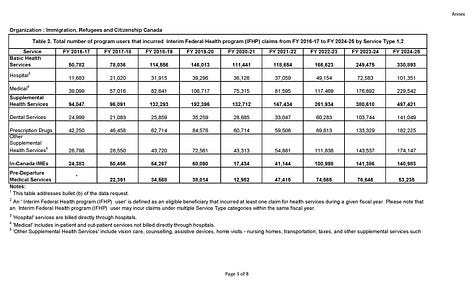
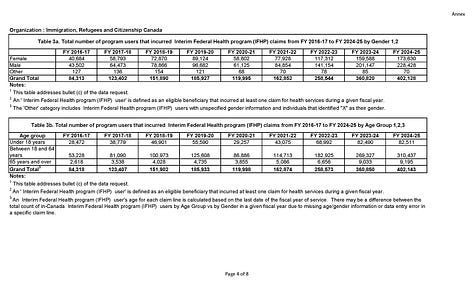
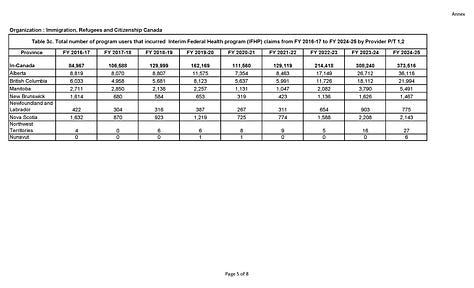
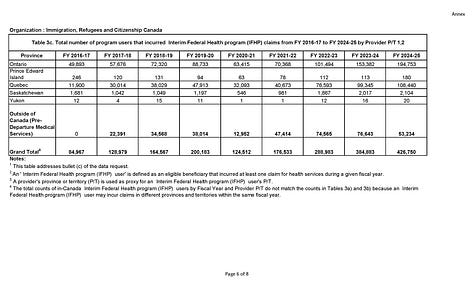
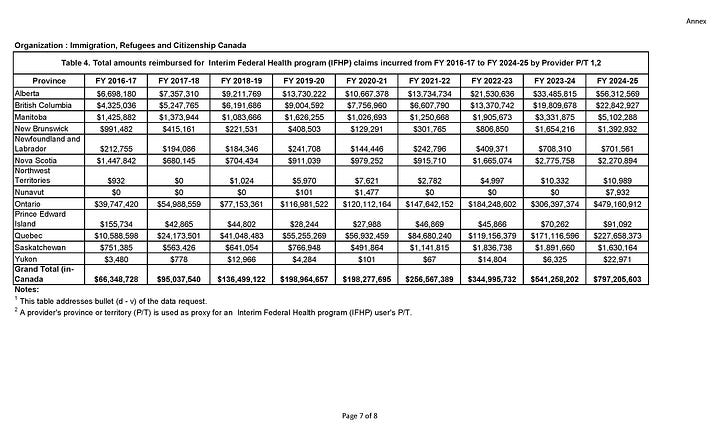
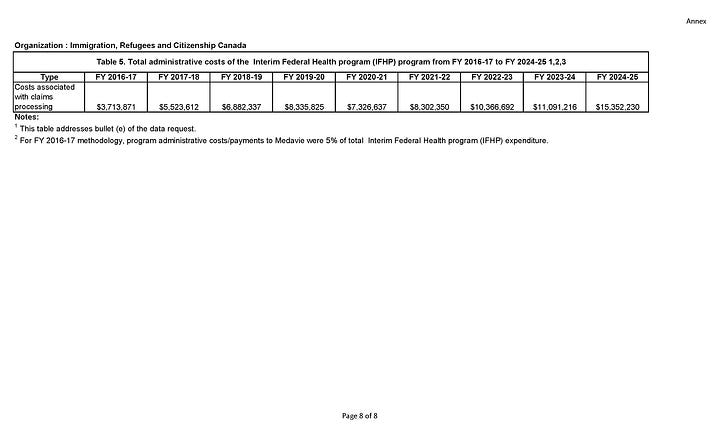


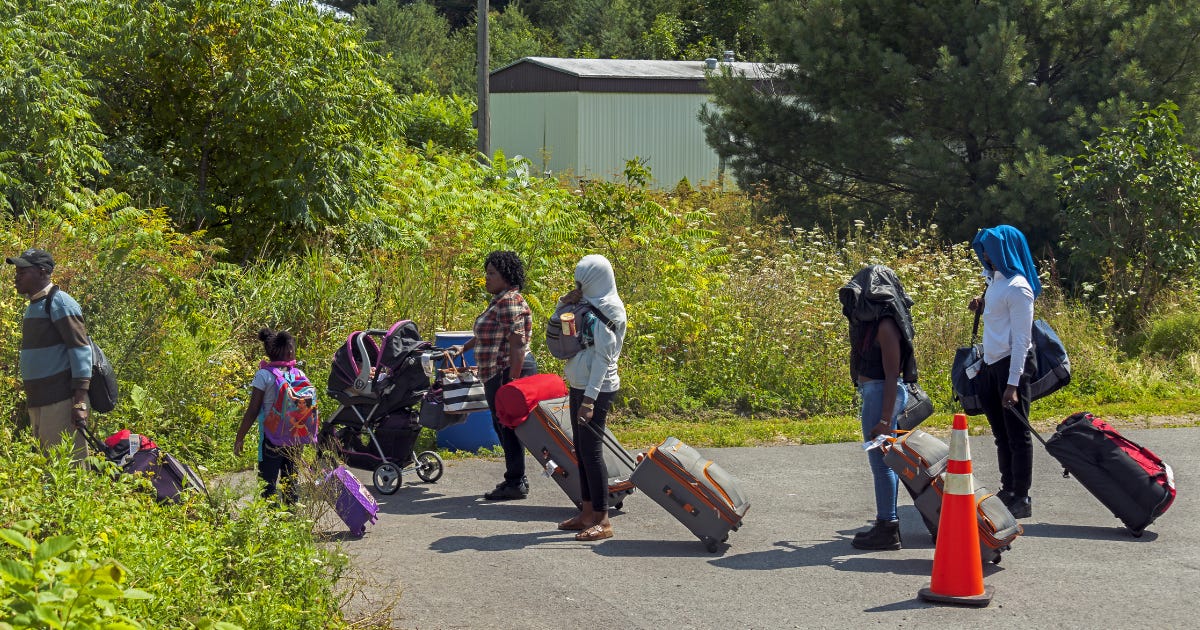


I guess the Liberals want Canadian’s to follow the UK over the edge and into the abyss…
Clayton, a big thanks! you've been busy. Aside from that....What the hell I paid income tax for 61 years. And now they give it all away to out of country unwanted intruders looking for a free life. YES, communism is running deep in kanaduuh.